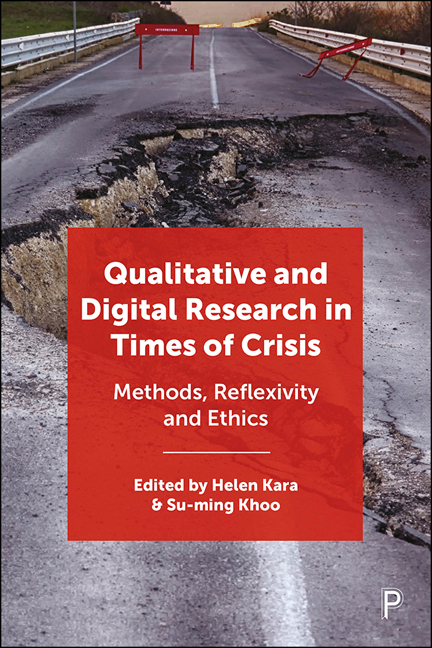13 - Building relationships and praxis despite persistent obstacles
Published online by Cambridge University Press: 13 May 2022
Summary
Introduction
This chapter discusses how participatory methodologies were developed for use in what became an entirely online study researching critical English language education in a context of protracted crisis; that is, the Gaza Strip (Palestine). The project on which this chapter is based was developed between 2014 and 2017; however, this chapter was written in summer 2020 when people in most countries of the world were self-isolating, due to the COVID-19 pandemic. Contexts of protracted crisis as in the Gaza Strip, as well as more generally contexts in the Global South in which different forms of knowledges and multiple ways of working coexist, are well positioned to illuminate the research landscape and methodological adaptations that these times of uncertainties require.
The Gaza Strip has been under blockade since 2007, and this impedes free movement and the flows of people and goods into and out of the Strip. The condition of forced immobility has consequences for the mental and physical well-being of Gazan inhabitants. In the context of academia, the blockade affects the mobility of staff, who, hence, cannot attend international conferences and events, making it challenging to create networks and longlasting, collaborative partnerships. In addition, the flow of knowledge into and out of the Strip is affected not just metaphorically, as books and any other materials published outside the Strip cannot easily be posted and reach colleagues inside the Strip. The study on which this chapter is based aimed at co-constructing critical, creative, and localised pedagogies for English language education in secondary schools in the Gaza Strip (Imperiale, 2017; Imperiale et al, 2017; Imperiale, 2018; Imperiale, 2021). Through a series of workshops, that were held entirely online, the researcher – based in the UK – and the participants, 13 pre-service English teachers based in the Gaza Strip, analysed and developed teaching materials and lesson plans for teaching English adopting creative and critical methodologies. Some of the teaching materials were then trialled and evaluated based on participants’ use of them in their classrooms. The study was grounded in participatory methodologies, and consisted of a cycle of critical participatory action research (CPAR), which included the phases of planning, action, observation, and reflection.
- Type
- Chapter
- Information
- Qualitative and Digital Research in Times of CrisisMethods, Reflexivity and Ethics, pp. 204 - 217Publisher: Bristol University PressPrint publication year: 2021



